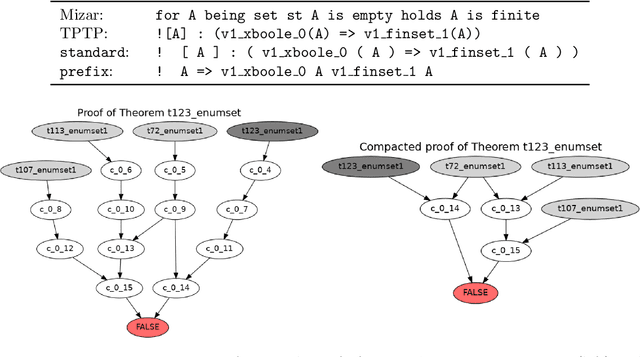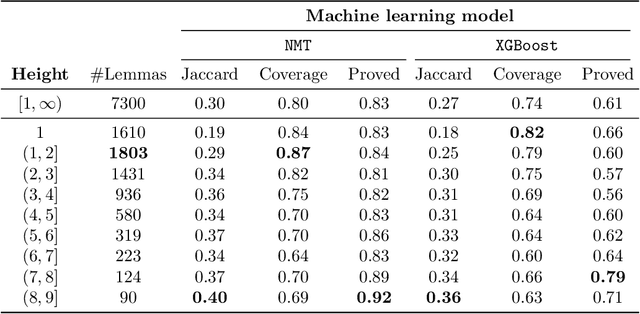Stateful Premise Selection by Recurrent Neural Networks
Paper and Code
Mar 11, 2020



In this work, we develop a new learning-based method for selecting facts (premises) when proving new goals over large formal libraries. Unlike previous methods that choose sets of facts independently of each other by their rank, the new method uses the notion of \emph{state} that is updated each time a choice of a fact is made. Our stateful architecture is based on recurrent neural networks which have been recently very successful in stateful tasks such as language translation. The new method is combined with data augmentation techniques, evaluated in several ways on a standard large-theory benchmark, and compared to state-of-the-art premise approach based on gradient boosted trees. It is shown to perform significantly better and to solve many new problems.
 Add to Chrome
Add to Chrome Add to Firefox
Add to Firefox Add to Edge
Add to Edge